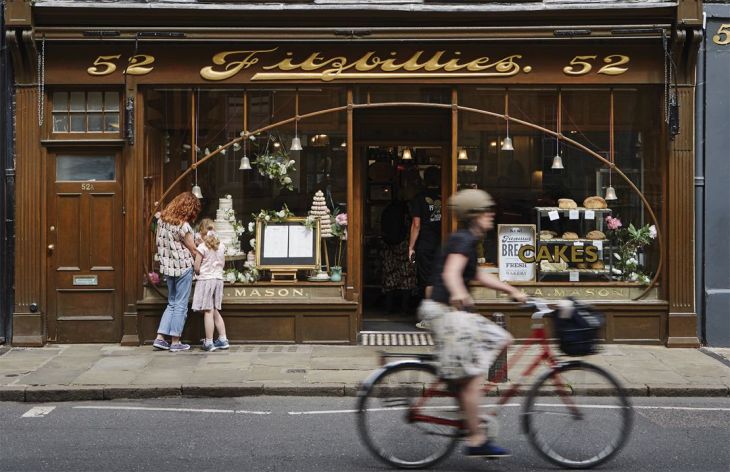Despite a few challenging years as a result of COVID-19, legendary Cambridge bakery Fitzbillies has emerged triumphant, with the help and insights of a group of students from Cambridge’s Institute for Manufacturing (IfM).
Founded in October 1920 by brothers Ernest and Arthur Mason, who wanted to put their demob money to good use, it is fair to say that Fitzbillies is something of a Cambridge institution.
Its 100-year history has seen the bakery face war, bankruptcy and a fire (not to mention competition from larger high-street bakery chains), yet the bakery has endured. Its delicacies – most famously its ever-so-sticky Chelsea buns – continue to satisfy students, locals and tourists alike.
Baked by hand 362 days a year, Chelsea Buns are Fitzbillies' most popular product (credit: Sam A. Harris)
Baked by hand 362 days a year, Chelsea Buns are Fitzbillies' most popular product (credit: Sam A. Harris)
Today, the business consists of a café behind the cake shop in Trumpington St, a second branch in Bridge St and an off-site bakery, which makes artisan bread and cakes.
But like many other small businesses, the COVID-19 pandemic threw the bakery a curveball, forcing the shop and cafés to close and leaving the team with no choice but to reconsider the way they did business.
“For the first few weeks of lockdown, we didn’t know if we’d even have Chelsea buns to sell,” explains Alison Wright, Fitzbillies’ CEO. “Just before lockdown we had decided to improve our website, but because the business was always super busy on the shop floor, we’d never put much effort into it. We never promoted it and the customer journey was probably rather terrible.”
Armed with a new website and some unexpected thinking time, Wright and the team set about acquiring a warehouse space next door to their bakery, and planned to use it as a packing space if they could make more of their online offerings.
“Just as I was thinking about how I was going to put enough strategic thinking time into the online business to justify paying for the new warehouse, the IfM got in touch and asked, “Would you like to take some students?” I replied instantly – 'Yes! Please can they come and do a project on how to grow an online business?!”’







